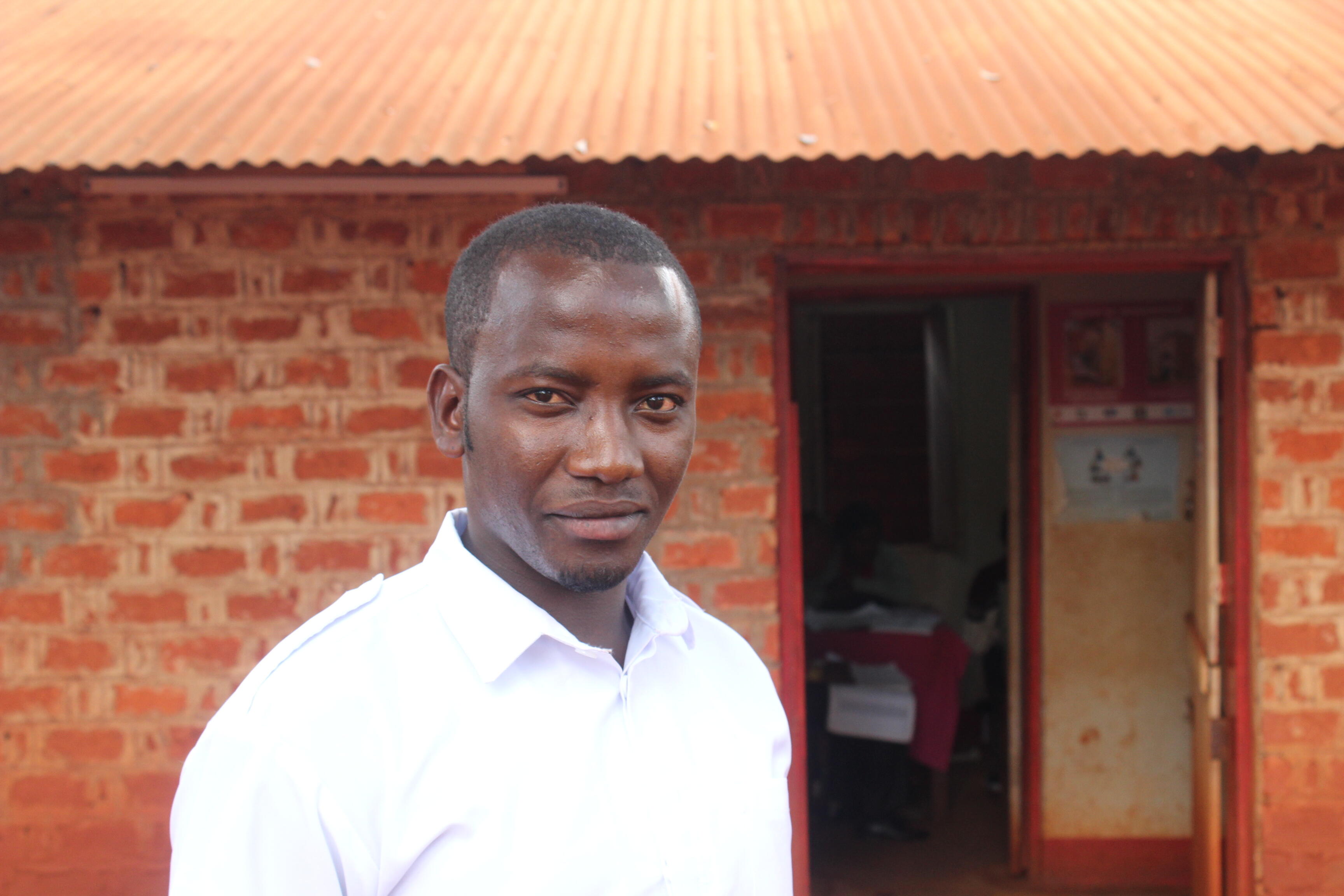Reproductive and maternal health has traditionally been considered a woman’s issue. But men too have an important role to play. Meet Abdul Nyamguma and Hofne Chrisostom Yohana, two UNFPA-funded nurse midwives, who are working hard to make pregnancy and childbirth safer in Tanzania’s Nyarugusu refugee camp.
Nyarugusu is one of three refugee camps in the Kigoma Region of the country, which collectively host 284,300 Burundian and Congolese refugees. There are an estimated 71,022 women and girls living in the three camps who need access to comprehensive sexual and reproductive health services, without which they would be vulnerable to unintended pregnancies, life-threatening obstetric complications, HIV infection, and sexual violence.
Providing comprehensive reproductive health care to displaced communities
Abdul and Hofne are two of 15 UNFPA-supported nurse midwives who have been deployed to the three camps in Kigoma through the ‘Emergency basic health services in support of the Burundian refugee influx into Tanzania’ project funded by the Central Emergency Response Fund (CERF).
Midwives deployed under the project deliver comprehensive maternal and child health care. As part of the project, UNFPA supplies Emergency Reproductive Health Kits to all partners working in the camps. These kits contain the life-saving equipment and supplies needed to ensure the basic sexual and reproductive health needs of women and girls.
The project also distributes dignity kits to new mothers on their discharge from maternity wards, to promote healthy and hygienic postnatal care. All interventions are implemented in collaboration with UNFPA’s partner, the Tanzanian Red Cross Society.
Making motherhood safer
There are over 10,000 births a year across the three camps, and demand for maternal health services is high. On a typical day in the delivery ward Hofne admits patients for delivery, taking note of their antenatal care visits, vital statistics, and any complications. He monitors and cares for women in labour, manages their delivery and reassures them at every stage. Once the baby is born he/she is dried, the airways are cleaned, and the baby is placed on the mother’s abdomen for skin-to-skin contact. If the baby doesn’t cry Hofne stimulates him or her. Within a minute the umbilical cord is cut and the mother is administered oxytocin injections to manage the third stage of labour- delivering the placenta.
Hofne actively manages the third stage of labour to reduce the risk of postpartum haemorrhage (PPH) and is well trained for any complications that may occur - he constantly monitors patients for symptoms of eclampsia or PPH. In the case of an emergency he talks to the patient and discusses the next steps, and theatre is quickly prepared if needed. Systems in place for obstetric complications at the camps are working well and saving lives.
Hofe remembers the first time he witnessed a patient die of PPH. “Seeing her die because of PPH, a manageable condition, gave me a lot of pain”, he says. It serves as a reminder of how important it is to have trained midwives, quality emergency obstetric and newborn facilities, effective referral systems, and voluntary family planning services in place, especially in humanitarian contexts.
Comprehensive care for mothers and newborns
Abdul delivers postnatal care. Every day he begins by compiling a report on patients being discharged and any issues that need to be monitored or followed up. Postnatal care includes taking the baby’s weight, and a comprehensive check-up for mothers and babies to identify any issues. Complicated cases are referred to doctors or other services. Women make three postnatal visits to the health centre after birth: on day 7, day 28, and day 42 when the baby starts their immunization schedule. Health education sessions are also held for women at the facility. This is organized by topic depending on the day. Some days the topic is voluntary family planning, on others it is nutrition and baby care. At the end of each day, Abdul cleans used instruments and tools, ensuring everything is sterile, and is ready for another day.
Saving lives
The project is saving lives and enabling women and girls to realize their sexual and reproductive health and rights (SRHR) - deciding whether, when and how many children they would like to have – and ensuring those giving birth can do so safely. In 2018, 2,121 unintended pregnancies were averted, 97 per cent of pregnant women gave birth in a health facility under the supervision of skilled healthcare professionals, and 335 gender-based violence survivors were treated and referred for legal and psychosocial support. UNFPA will continue to provide life-saving SRHR services throughout the protracted crisis and recovery phase of the humanitarian emergency in Kigoma, ensuring no one is left behind.
1. UNHCR, Tanzania Refugee Situation Statistical Report. December 2018.
2. Estimated using the Inter-Agency Working Group on Reproductive Health in Crises, MISP Calculator. Available at: http://iawg.net/resource/misp-rh-kit-calculators/.


